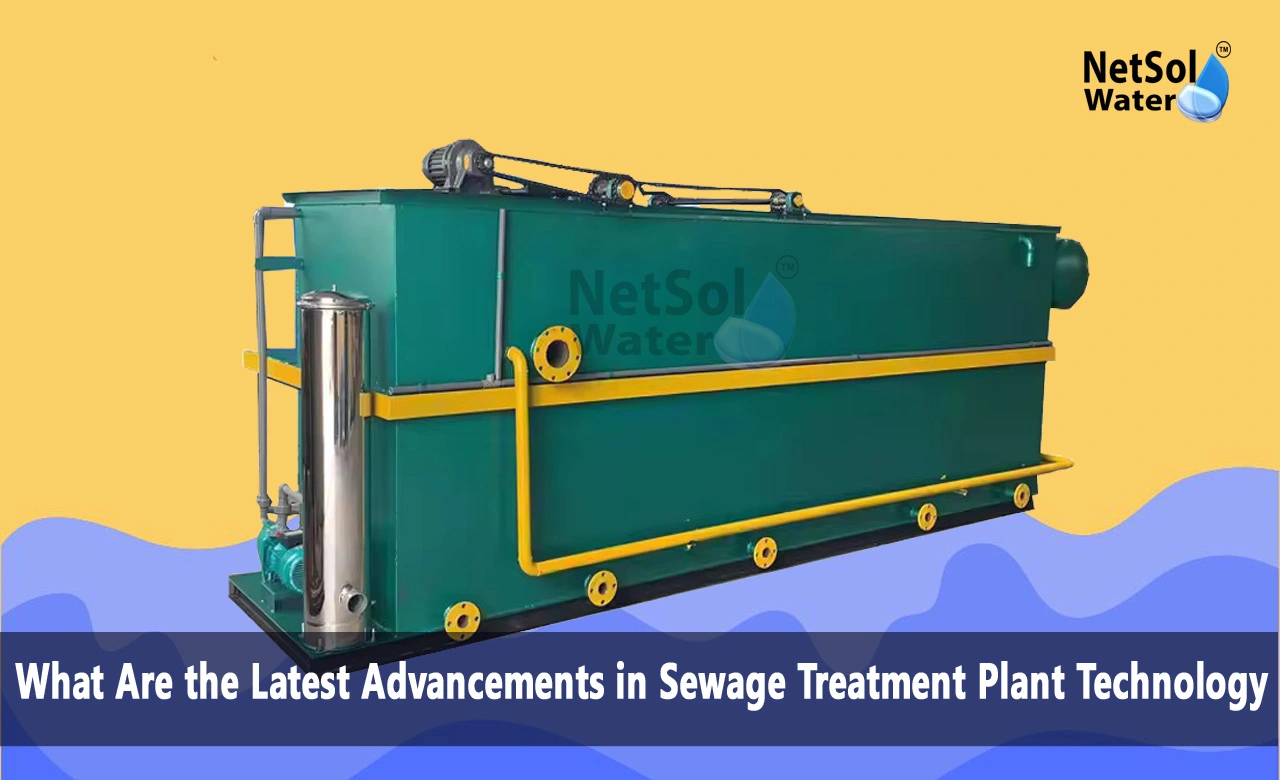What Are the Latest Advancements in STP Plant Technology?
In today's world, where population growth and urbanization are on the rise, effective sewage treatment plant technology has become an essential component of modern infrastructure. These plants play a crucial role in protecting our water bodies and the environment from the detrimental effects of untreated wastewater. Over the years, advancements in technology have transformed the way sewage treatment plants operate, making them more efficient, sustainable, and environmentally friendly. We'll explore some of the latest advancements in sewage treatment plant technology and how they are reshaping the industry.
Membrane Bioreactor Technology
In sewage treatment plants, membrane bioreactor (MBR) systems stand out as a major technological advancement. MBR technology combines biological treatment with membrane filtration, creating a highly efficient and compact system. Unlike conventional plants, where solids and liquids are separated through sedimentation, MBR systems employ microporous membranes to physically separate treated water from activated sludge.
Advantages of MBR Technology:
Produces high-quality effluent suitable for reuse or discharge into sensitive water bodies.
Requires a smaller footprint compared to conventional sewage treatment plants, making it ideal for urban areas.
Offers better control over the biological treatment process, ensuring consistent performance.
Reduces the need for additional tertiary treatment processes, lowering operational costs.
Advanced Oxidation Processes
Traditional sewage treatment methods might struggle to eliminate persistent organic pollutants, pharmaceuticals, and emerging contaminants from wastewater. To tackle this issue, sewage treatment plants are turning to advanced oxidation processes (AOPs) more and more. AOPs create super-reactive hydroxyl radicals that can break down and neutralize these tough pollutants effectively.
Common AOP Technologies:
Ozone-based processes
UV-based processes (UV/H2O2, UV/O3)
Fenton and photo-Fenton processes
Electrochemical oxidation processes
Benefits of AOPs:
Effectively remove recalcitrant organic compounds and emerging contaminants.
Improve the overall quality of treated water for safer discharge or reuse.
Reduce the formation of harmful disinfection by-products.
Enhance the biodegradability of wastewater, making it easier for subsequent biological treatment processes.
Resource Recovery and Circular Economy
Modern sewage treatment plants are adopting a circular economy approach, where they recover valuable resources from wastewater instead of letting them go to waste. This shift not only lessens the environmental impact of sewage treatment but also opens up new revenue sources and promotes sustainability.
Resource Recovery Opportunities:
Biogas production from anaerobic digestion of sewage sludge, which can be used for energy generation.
Nutrient recovery (nitrogen and phosphorus) from wastewater for use as fertilizers.
Water reuse for agricultural, industrial, or non-potable purposes, reducing the demand for freshwater resources.
Sludge valorization through composting or land application, providing valuable soil amendments.
Benefits of Resource Recovery:
Reduces the environmental footprint of sewage treatment plants.
Generates additional revenue streams through the sale of recovered resources.
Contributes to the circular economy by reusing valuable materials and energy.
Promotes sustainability and resource efficiency in wastewater management.
Automation and Intelligent Control Systems
The combination of advanced automation and smart control systems has completely transformed how sewage treatment plants operate. These systems use sensors, data analysis, and artificial intelligence (AI) to fine-tune processes, boost efficiency, and cut down on operational expenses.
Intelligent Control System Features:
Real-time monitoring and data acquisition from various process parameters.
Predictive analytics and machine learning algorithms to optimize process control.
Automated adjustments and decision-making based on real-time data and historical trends.
Remote monitoring and control capabilities, enabling centralized management of multiple facilities.
Benefits of Intelligent Control Systems:
Improved process efficiency and consistency, leading to better treatment performance.
Reduced energy consumption and operational costs through optimized process control.
Enhanced operational safety and reduced human intervention in hazardous environments.
Proactive maintenance and early detection of potential issues, minimizing downtime and equipment failures.
Emerging Technologies
The sewage treatment plant industry is continuously evolving, and new technologies are emerging to address emerging challenges and improve sustainability. Here are a few promising emerging technologies:
Microalgae-based treatment: Microalgae can be utilized in sewage treatment plants for nutrient removal, CO2 sequestration, and the production of valuable biomass that can be used for biofuel or other applications.
Nanotechnology: Nanomaterials and nanostructured membranes offer increased efficiency in pollutant removal, antimicrobial properties, and enhanced membrane performance.
Electrochemical treatment: Electrochemical processes, such as electrocoagulation and electrooxidation, are gaining attention for their ability to remove pollutants and disinfect wastewater efficiently.
Decentralized treatment systems: Decentralized sewage treatment plants are becoming more prevalent, especially in remote or rural areas, offering cost-effective and localized wastewater management solutions.
Conclusion
The progress in sewage treatment plant technology is leading us toward a greener and more effective approach to managing wastewater. Technologies like membrane bioreactor systems, advanced oxidation processes, resource recovery, and intelligent control systems are reshaping the industry. With population growth, urbanization, and environmental issues on the rise, these innovative technologies are vital for safeguarding our water sources and preserving a clean environment for the next generations.
Do you need an advice or assistance on selecting the best water and waste water treatment unit? We have solutions for all your problems!
Let us know your problem, our experts will make sure that it goes away.
For an assistance or related query,
Call on +91-965-060-8473 Or write us at enquiry@netsolwater.com



